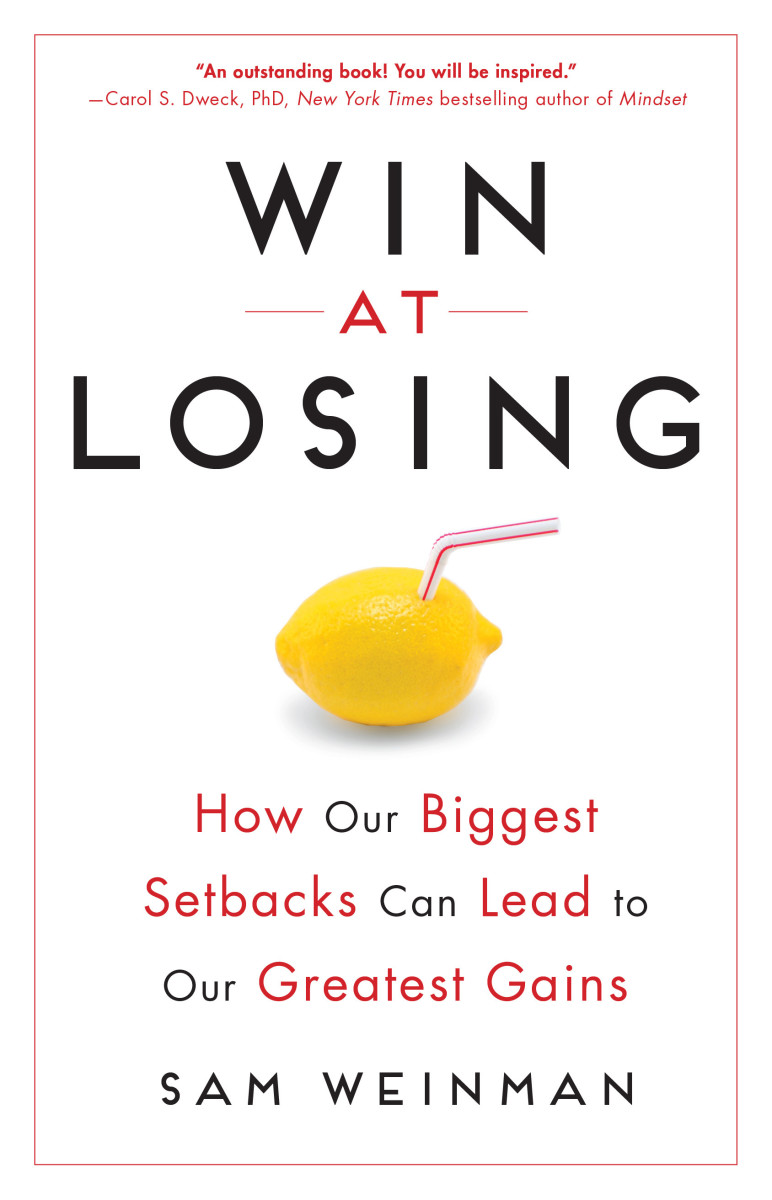The story of Ralph Cox, the last guy cut from the 1980 U.S. Olympic hockey team

The following is excerpted from Win at Losing by Sam Weinman with the permission of TarcherPerigee, an imprint of Penguin Random House. Copyright © 2016 by Sam Weinman.
In Win At Losing: How Our Biggest Setbacks Can Lead To Our Greatest Gains, Sam Weinman explores how failure—whether in sports, politics, or business—can often be beneficial. Among the people he profiles is Ralph Cox, a former college hockey star who was squeezed out of arguably the greatest moment in sports history.
It was inevitable in writing a book about losing that some might interpret the subject as rather morbid. I get that sometimes. In discussing my topic with a friend, she mentioned how the last thing young people want to hear is that they’re bound to fall flat on their face. It’s too negative a message, she said. People at that age would prefer to be inspired.
OK fine, I thought. But in what category would you put Ralph Cox?

Win at Losing
by Sam Weinman
An inspiring exploration of the surprising value of setbacks—and how we can use them to succeed and lead to our greatest gains.
What you might know about Ralph comes from the movie Miracle, which is the true story of the 1980 U.S. Olympic hockey team that upset the powerful Soviets en route to the gold medal at Lake Placid. For hockey players, it is almost required watching, but I’d argue it’s a gripping tale for anyone, the story of a collection of obscure college hockey players who banded together to beat maybe the greatest team to ever play. It really is a remarkable movie. I suggest you watch it now. Go ahead. I’ll wait.
Anyway, one of the movie’s bit characters is an affable forward with a thick Boston accent. Ralph Cox had shaggy hair and a handlebar mustache, and in college hockey, he was a prolific goal scorer. The problem is Cox also suffered an ankle injury in the run-up to the games, and it continued to nag at him as the Americans were paring down their roster for Lake Placid. In one of the movie’s most emotional scenes, the US coach, Herb Brooks, calls Cox into his office to relay the news that he had to make one more cut, and Cox was it. Brooks was a tough guy, usually about as emotional as a hockey puck, but it was apparent that having to cut Cox gutted him. Which makes sense: twenty years earlier, Brooks was the last player cut from the 1960 Olympic team that went on to win a gold medal.
In the aftermath of the 1980 Olympics, the players who went on to win the gold medal were given ample opportunity to bask in their improbable win against the Soviets. Along with the movie, there have been books and documentaries, as well as a steady schedule of public appearances.
Ralph Cox, meanwhile, became a curious footnote. When the U.S. hockey team beat the Soviets, he was in Tulsa, Oklahoma, having already started his professional career with a minor league affiliate of the NHL’s Winnipeg Jets. Torn over whether to watch the game or pretend to ignore it, he put himself in front of the TV in an effort to get on with his life. He never suggests it was easy.
“Those were dark days,” Cox tells me. “The hoopla, the parades. It was the toughest time to keep my chin up. I was embarrassed. I felt like I let a lot of people down.”
With time, though, Cox forced himself to construct a new narrative. He had spent six months with the National Team prior to the Olympics, and he chose to be grateful for the role he had played in the team’s subsequent success. He thought of his father, who had signed up for the service at age seventeen, and who had to endure the horrors of World War II in the Pacific Islands. Compared to that, could Ralph really let himself be defined by being cut from a hockey team?

In the months and years following the 1980 Olympics, people often felt compelled to offer Cox their sympathies, but he rarely let them finish the sentence. ‘I would tell them, ‘This is not the last chapter of my life.’”
Approaching sixty, with a happy family and successful career in commercial real estate, Cox now talks about his dismissal from the Olympic team as a kind of hidden blessing. Even more striking is that he never used his Olympic letdown as some vengeful fuel. When discussing Brooks, who died in a 2003 car crash, he still recalls how visibly painful cutting Cox was for the coach. When it comes to the teammates who tasted glory without him, Cox has only been a cheerleader.
“Right from the get-go I felt an obligation to all the guys to live life with my chin up and always be proud of their accomplishments, which I was,” he tells me. “It took about ten years to truly realize I would do it all over again if given the chance. Don’t get me wrong, I would have loved to be an Olympian. But I’ve had such a remarkable life, I couldn’t imagine it being any better.”
The definition of inspiring can vary. Certainly one type of inspiration can be found in a movie like Miracle that describes the most improbable of victories. But another is the lesser-told story of a man able to extract happiness and meaning from a crushing defeat.
“Having to find my way out of the darkness was at times a very painful experience, but ninety-five percent of it was incredibly powerful,” Cox says. “Failure, if done properly, is the magical opportunity to create success and happiness.”
